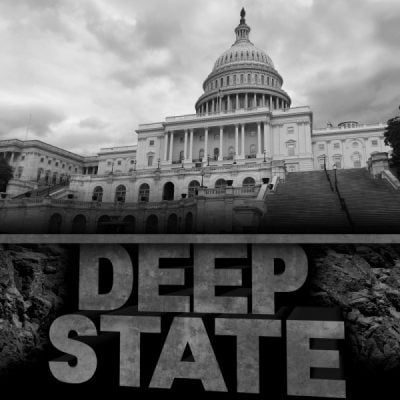by Dr. T. P. Wilkinson, Global Research:

President Kennedy was furious at the CIA for having misled him. Waiting several months before he compelled CIA Director Allen Dulles to resign, Kennedy told him,
“Under a parliamentary system of government it is I who would be leaving. But under our system it is you who must go.”
Thus John F. Kennedy defended the illusion that the Anglophile dominated US government had transcended its British aristocratic-monarchical roots.
TRUTH LIVES on at https://sgtreport.tv/
President John F. Kennedy with CIA Director Allen Dulles and Director-designate John McCone on September 27, 1961. Photo credit: Robert Knudsen. White House Photographs. John F. Kennedy Presidential Library and Museum, Boston
Allen Dulles resigned from his office as Director of Central Intelligence to preside over the committee that would disprove Kennedy‘s naive belief in an American system of responsible government in the hands of popularly elected representatives.
 A Conservative friend of the Thatcher regime in Great Britain created a series called “Yes Minister” (with a sequel “Yes Prime Minister”) in which the power of the permanent civil service over elected parliamentary government was lampooned.
A Conservative friend of the Thatcher regime in Great Britain created a series called “Yes Minister” (with a sequel “Yes Prime Minister”) in which the power of the permanent civil service over elected parliamentary government was lampooned.
Yet behind the sarcasm with which Sir Humphrey exhibits his scarcely concealed contempt for the “barbarians” – meaning His Majesty’s ordinary subjects- lies the admission of simplicity in what has been recently called the “Deep State”.
Denied by most in the West, the existence of what Prouty called “the secret team” is so obvious to the scriptwriters of the aristocratic-monarchist British Broadcasting Corporation that it could be advertised in prime time. The history of the current regime in the Federal Republic of Germany, ignored by most of occupied Germany’s licensed “free media”, was so obvious that GDR prime time TV broadcast a series in the 1970s which dramatized the US-Nazi cooperation in the remilitarization of Germany (west) to fight the war now actually impending against Russia.
Das Unsichtbare Visier told the story of secret rearmament using the core of the SS and reliable Wehrmacht officers and the use of CIA Gladio operations to create pseudo-Left terrorism in the strategy of tension against the nominally legal Left in the NATO-occupied countries.
The best the US could do was House of Cards, which follows the Dallas template with some cynical steroids.
However while the British and the GDR series admit this is a system, the US version is unable to transcend celebrity and the superficiality of daytime soap operas.
All three series were devised as entertainment. They therefore have aesthetic attributes, which permit the viewer to suspend belief. However the difference in context is remarkable.
While the GDR version fictionalizes history and the British version reeks of the smugness in the senior common room, Americans at their most cynical cannot transcend the Disneyland/ Leave it to Beaver (even if Beaver now would be a trannie) exceptionalism by which only the individual is good or bad. Despite the candid asides and opportunism of the players, the story is always about corruption. The politicians are dishonest and greedy for wealth and power. But so is everyone else. House of Cards conceals the interests of power inherent in the system by making all the participants sinners with varying degrees of indulgence and grace. The clever are the elect (or elected). Calvinism is affirmed.






